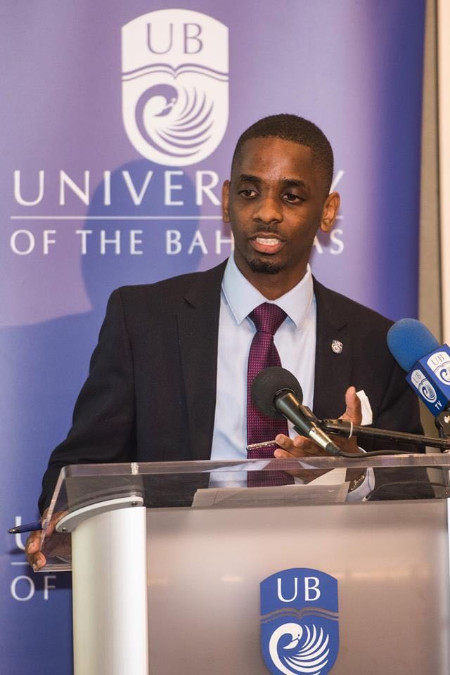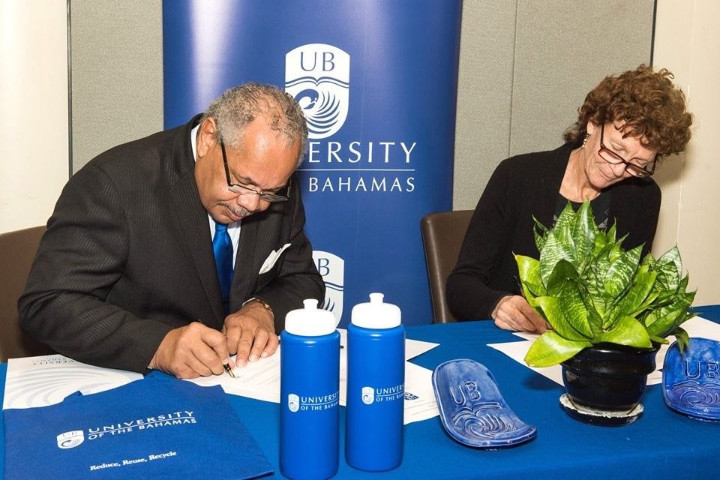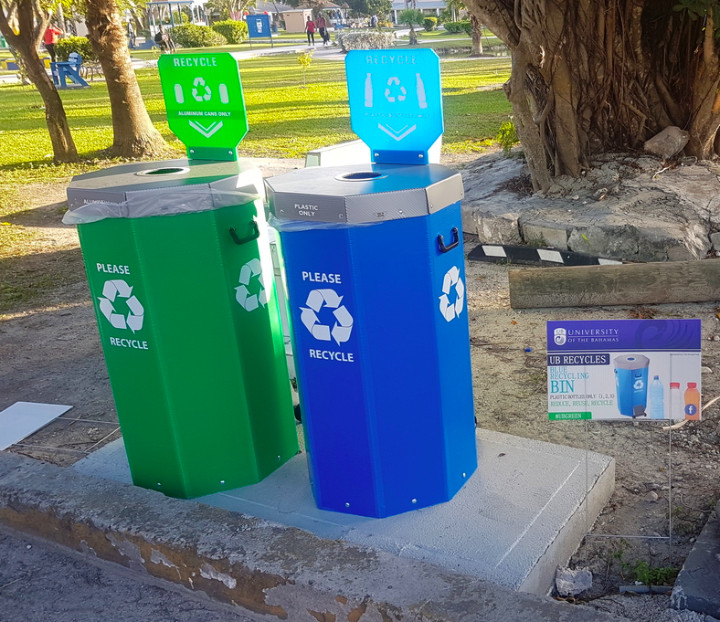|
From:TheBahamasWeekly.com Community
As it continues to embrace a sustainability paradigm and advance environmental stewardship, University of The Bahamas (UB) has passed three new policies designed to reduce the institution’s carbon footprint and encourage green living. The Policy on Recycling is effective immediately, while the policies Banning the Purchase of Single-use Plastics and Styrofoam, and Governing Sustainable Food Service Products both will take effect on 1st July, 2018. The Policy on Recycling aims to reduce campus contribution to the landfill by recycling plastic bottles and aluminum cans in addition to reducing paper consumption. This is envisioned to inspire recycling by faculty, staff, students and alumni as a personal habit. UB is a designed Green Zone and is partnering with Waste Not Bahamas to recycle bottles and cans. “We have had such vast problems with the dump, that we immediately thought to take some action to reduce our impact there. But more importantly, it is a great step in having our students, faculty and staff begin to change the culture on campus, as it relates to caring for the environment. And we want this culture to spill over into their lives beyond campus, so that we are creating a strong population of people who are actively engaged in caring for the environment,” said Campus Sustainability Coordinator Mr. Keyron Smith.
“The other policies will take things a step further, banning single use plastic bags on campus and banning the purchase of disposable plastic and Styrofoam items. We will instead use biodegradable food service products and encourage our community to use re-useable bags. As a small island state, it’s vitally important that we start practices that will mitigate damage to our seas and be better for us all in the long run.” UB President Dr. Rodney D. Smith shared Mr. Smith’s enthusiasm over the formalization of these polices and how they will be used to deepen a culture of environmental sustainability. “At UB, we strive to be a leader in our community. More and more, people are looking to us to highlight the way forward, so we must engage in best practices and demonstrate in meaningful, impactful ways how we can make The Bahamas more sustainable,” he said. “These polices will govern the entire University System and, in fact, at the Gerace Research Centre, our campus in San Salvador, many of these practices have been in place for years.”
The University also serves on the Ministry of Environment and Housing’s task force charged with managing the process of banning single-use plastics and Styrofoam in The Bahamas by 2020. Small island sustainability is one of the priorities for UB, which is opening the G. T. R. Campbell Small Island Sustainability Complex, a centre of excellence at the Oakes Field Campus, in Fall 2018. The appointment of a Campus Sustainability Coordinator was also key in helping to develop a robust culture of sustainability within the University System, encompassing among other priorities, defining sustainability goals, using performance metrics to assess the effectiveness of strategies and identifying potential grants in support of comprehensive campus sustainability efforts. Since his appointment in August 2017, Mr. Smith has collaborated with administration, faculty, staff, and students to develop, coordinate, and promote effective sustainability initiatives to reduce UB’s adverse impact on the environment.
|


